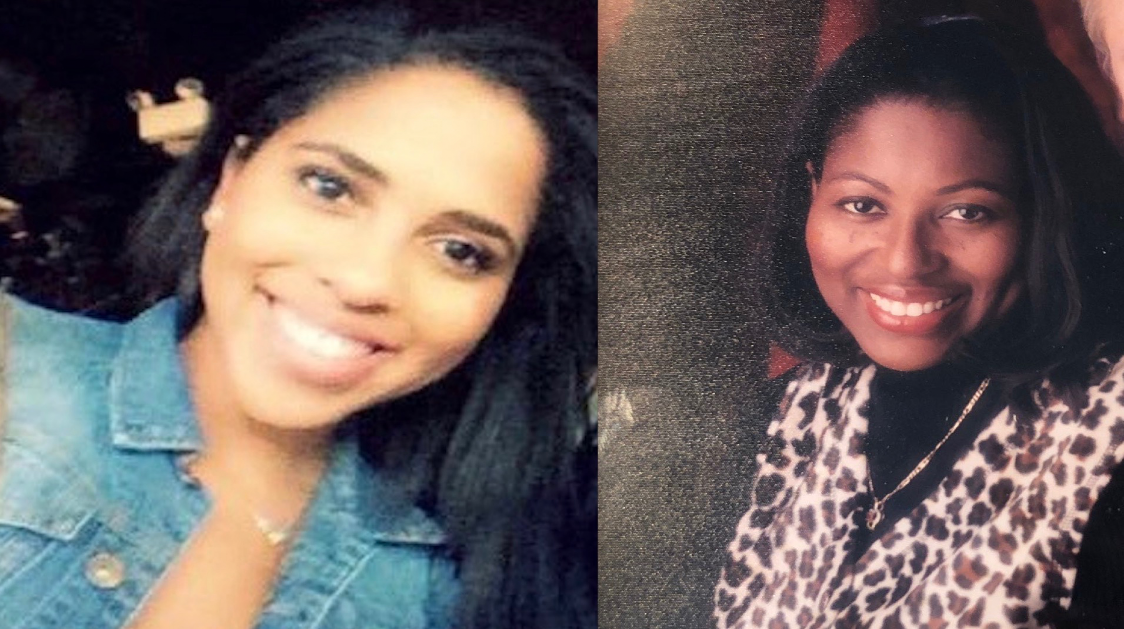Brooke wasn’t worried that she might end up behind bars this weekend. The only thing she feared was telling her mom. But she did.
“Brett and I are protesting this weekend. If need be, I plan to volunteer to be strategically arrested, in my support for black men in this country.”
She also texted her mom an instruction:
“I will expect you to bail me out. There will be bail money in my bank account.”
Brooke’s mother Linda grew up in the Deep South. When Linda was 15 years old, she helped to integrate her white school in Jacksonville, Florida. Growing up, she’d seen her own father, a U.S. Veteran, get beaten by the police. He died when she was still a teen.
So even though Brooke was nervous to tell Linda about the protest, she had a feeling her mom would understand. And she did, texting back:
“Wish I could be there with you! But girl, I’m proud! I’m mad I can’t be there!”
Linda meant the last part literally. Breast cancer prevents her from joining her children as they stand up for George Floyd and against the continuation of equal rights denied. But she texted her daughter one more thing, a link to an article from Time: “What Martin Luther King, Jr. Really Thought About Riots.”
Brooke Hanrahan was a star student of mine a few years ago at Arizona State University An undergrad studying journalism, she was already a reporter covering government for the State Press. We spoke via Zoom on Friday.
“Michael, I’ve witnessed this my whole life. I’ve seen my brother, who is the CEO of an avionics business, arrested in front of his house during a company-wide Super Bowl party. Someone else’s house down the street was robbed and the police saw a black man in a nice neighborhood standing in sweatpants in his yard, not knowing that he was having a Super Bowl party inside. They drew guns on him and he was on his stomach, crying in front of our whole company. That’s what I grew up seeing.”
Brooke is now 27 years old. She grew up in Austin, Texas, and moved back recently to help her family’s business. But no matter where she’s lived, the experience has been the same.
“I was followed to work three days ago, literally into the parking lot. This is my world. I live here. I live in this America every single day. Unfortunately, I don’t know what it takes to get to where we need to go, but I know that I don’t have the luxury to not join them.”
I told Brooke that I hadn’t yet written about the events of last week. I told her that on the night that police killed George Floyd, I wanted to immediately express my anger. But I didn’t because it felt almost like an act of appropriation. Being white, it’s just too damn easy to instantly announce how “infuriated” I am by the news. Because it’s not news. Brooke understood all too well what I meant.
“The boiling point doesn’t surprise me. Other people’s reaction to the boiling point surprises me. I’m not shocked that Minneapolis burned to the ground, I’m shocked that people are shocked.”
She believes the bottleneck will ultimately break.
“Americans need to wake up. People are not happy. They will take to the streets. We are not immune from riots. We’re not immune from overthrowing the government. I’m not for it, I’m just saying that it doesn’t mean it can’t happen here. It happens every day. The Romans fell. People will not take this forever.”
We started talking about solutions — not that there’s anything very much new to suggest. It’s always been more of a matter of will — white Americans’ will.
Brooke said she and her brother wouldn’t mind seeing a shutdown of state governments to wake everyone up. They also know that’s not very likely.
Before we said goodbye, there was a final point Brooke thought was really important to make. She explained that the issue of “generational trauma” is one that isn’t talked about, but should be.
“You have generations and generations of black people that are raised by black people, that were traumatized by the police. My mother was raised by a mother who was traumatized by the police, by a father who was traumatized by the police. And then she saw the trauma firsthand. Then she raised her children with that trauma and fear. And so the idea that the African-American community doesn’t know how to interact with police or doesn’t — that the onus is on the African American community? I can tell you from the deep-rooted trauma in my own family, the answer is always to comply. It’s always to do the right thing, and it’s never worked.”
I thanked Brooke for sharing her thoughts. She thanked me for asking. I told her to be as careful as possible protesting, and then we said we’d talk soon.
This morning, after a third night of brutal riots across the country, I wrote Brooke for her thoughts on all of the vandalism. She’s well aware that a lot of the damage is being caused by outside elements with other agendas. Still, in her answer, she quoted MLK from the article her mom sent her: “Riots are the voice of the unheard.”
And then she typed: “This is the beginning. Not the end.”


